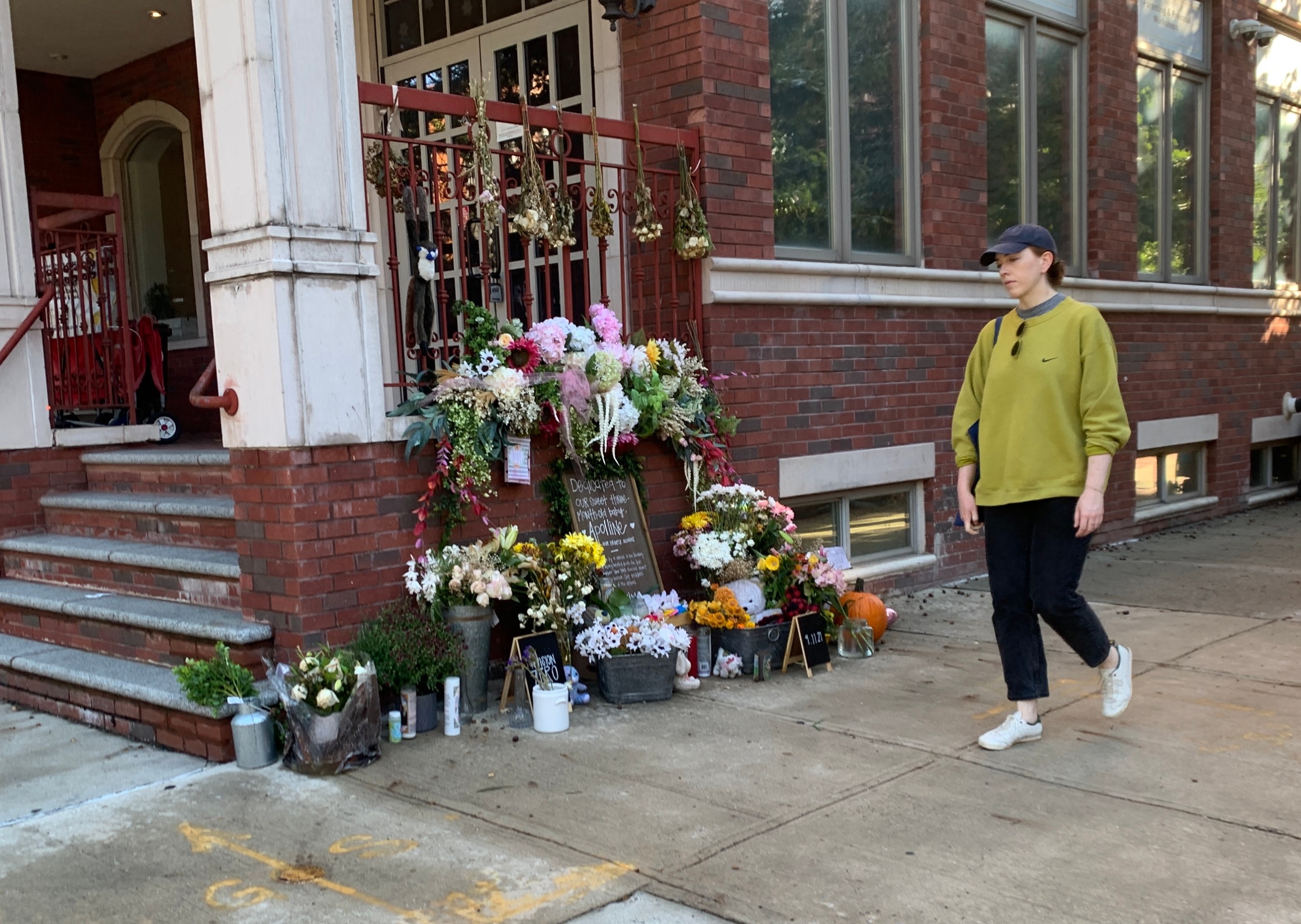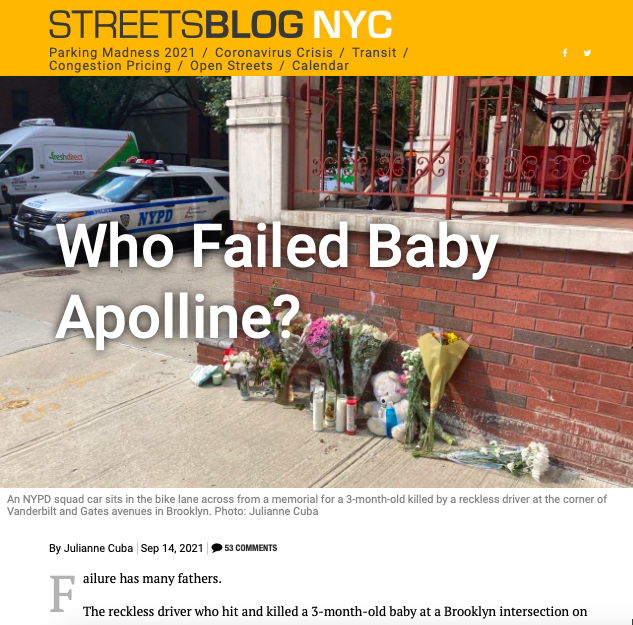The city must turn a deadly Brooklyn street into a car-free plaza — and rename it after the 3-month-old baby who was killed by a reckless driver there in September — a community group and a new petition is demanding.
The one-block squibb of Gates Avenue between Vanderbilt Avenue and Fulton Street would finally be closed to cars under a plan that seeks to build on an earlier city effort from 2017 that narrowed the roadway, but did not make it car free — a deficiency of design that is, in part, responsible for the death of Apolline Mong-Guillemin on Sept. 11.
"We want to close that street to cars, widen the existing plaza and then rename it 'Apolline's Garden,'" said Renee Collymore, a former district leader in the neighborhood and head of the Vanderbilt Avenue Block Association who is circulating the Change.org petition.
"For decades, that small portion of Gates Avenue has been dangerous," Collymore told Streetsblog. "Even after the city made it one-way, people still drive against traffic, just like in the crash that killed Apolline. So by creating Apolline's Garden, the city would be making a long-overdue investment in safety for our health and kids, plus also creating a beautiful space."
The earlier city effort widened the existing Gateway Triangle, but still left a narrow roadway with about eight parking spaces. Collymore, who is a driver, said she disagrees with any residents who argue that parking needs to be preserved in this case.

"We have to remove the cars," she said. "Yes, people always talk about the need for parking, but other people say to me all the time, 'Can you believe that they still let cars go on that street?!' I see people go the wrong way all the time."
Collymore is not the first to draw attention to — and seek change at — the fatal intersection in the weeks since the unlicensed and recidivist reckless driver Tyrik Mott drove the wrong way on Gates Avenue, crashed into another car and killed Apolline, cops said. Shelley Hoberman, who is affiliated with the Discovery Pit Stop school at the corner, has been organizing families to get behind a safety redesign. She's working with urban planner Mike Lydon of Street Plans to create designs that can be presented to the local community board and to incoming Council Member Crystal Hudson shortly after the new year. Hudson, unlike her predecessor, is said to be welcoming the street-safety effort.
"This crash has really spurred renewed attention to safe streets in the neighborhood," Lydon said. "In the short term, many people want that intersection fixed by closing Gates Avenue to car traffic. But there's also a larger effort to look again at [previously controversial issues such as] the protected bike lane on Clinton Avenue. There is a larger, neighborhood-wide discussion happening."
A spokesman for the Department of Transportation said the agency will look at any proposal that is presented.
“We appreciate feedback from our constituents, and we hold the victims of this terrible tragedy in our thoughts," said," Seth Stein, the DOT spokesman. "We look forward to reviewing this proposal.”
It's not as if the city's Department of Transportation, a $1-billion-plus city agency with thousands of employees, has not created many public plazas using designs of its own creation. One of the greatest examples of such a plaza is just six blocks to the east on Fulton Street, where, in 2019, the city created Putnam Triangle by closing the terminal one-block squibb of Putnam Avenue to cars, and filling it in with concrete, planters, seating and tables. It is now a beloved local amenity (see below):








